The first three days of our trip were spent with Arianna and Selina of the South Texas Human Rights Center. Our goal was to assist them in the repair and filling of water stations. Over the last three days we attended about 40 stations in three different counties. We were also able to see the new protocol stations designed by students at Trinity University. These stations are solar powered, have a place to charge cell phones, transmits the weight of the water (so the STHRC knows when to go fill them), store medical supplies and hold more water then the traditional stations. Spending so much time with them also allowed us to learn more about what they do through the STHRC and with the Missing Migrant Hotline. We saw the time and care they give to each case and some of the steps they are able to take to assist the families of the missing.
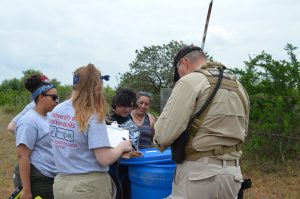
Also with us was Deputy Sheriff Don White of the Brooks County Sheriff’s Department. He volunteers his time to search the remote ranch lands of Brooks County for migrants in distress or for the remains of those that have perished. For the last three days he was also volunteering with us to work on the water stations and provide security. He is the only person who conducts searches like this on a regular basis and has saved countless lives and recovered the remains of many migrants that might not have been found otherwise.
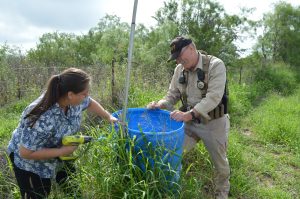
These three days gave us just a glimpse of the many people that are volunteering their time and resources to address the crisis at the US-Mexico border. We spent time with some prominent community members and got to hear stories about growing up in the area and some local history. We also met Byron, whose cousin went missing on a ranch near Falfurrias. He frequently drives in from out of state for updates and to make sure there’s progress on his cousin’s case. He also volunteers while in town and went with us to work on water stations. In just three days the team has been exposed to many aspects of border life and many different angles of the migrant crisis. I asked them each to relay an imapctful moment or observation:
One of the most impactful observations that I had these 3 days of filling water stations was at one of the ranches. Seeing all of the damage to the fences made from people trying to get over them is something I’ll never forget; that’s when reality started to hit about how many people are putting their lives in danger just to be in this country. — Alba
The one prototype station with the tarp that had so many scorpions and spiders under the tarp was very eye opening. While we thought it hazardous to even be near the station, anyone crossing through the area wouldn’t even think twice to reach their hands in for some water. — Alba
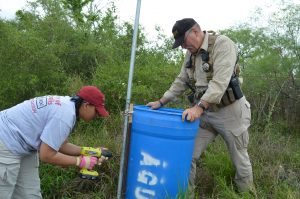
So far I have learned both how kind people can be and how unkind they can be. A volunteer fills the stations on 1017 on his own time on his way to/from work. On the other hand, people vandalize the stations with hateful messages, just because they can. — Sidney
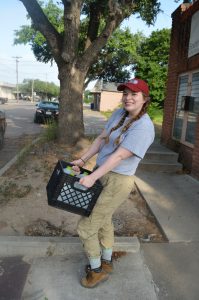
Being sick during this trip has made me realize how difficult it must be to make such an extensive journey while being ill. I found myself confusing symptoms of my cold with symptoms of dehydration, which could be detrimental to an individual’s health in the environment of Texas if they did not have people with them who recognized the differences or did not have enough water to combat the dehydration. — Holley
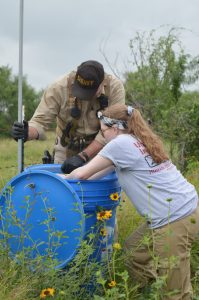
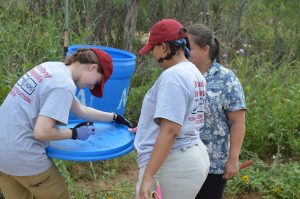
~KEL